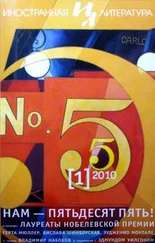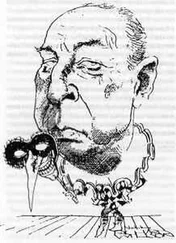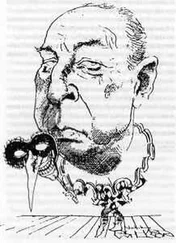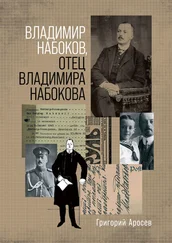Владимир Набоков - Vladimir Nabokov Pnin
Здесь есть возможность читать онлайн «Владимир Набоков - Vladimir Nabokov Pnin» весь текст электронной книги совершенно бесплатно (целиком полную версию без сокращений). В некоторых случаях можно слушать аудио, скачать через торрент в формате fb2 и присутствует краткое содержание. Жанр: Классическая проза, на английском языке. Описание произведения, (предисловие) а так же отзывы посетителей доступны на портале библиотеки ЛибКат.
- Название:Vladimir Nabokov Pnin
- Автор:
- Жанр:
- Год:неизвестен
- ISBN:нет данных
- Рейтинг книги:4 / 5. Голосов: 2
-
Избранное:Добавить в избранное
- Отзывы:
-
Ваша оценка:
- 80
- 1
- 2
- 3
- 4
- 5
Vladimir Nabokov Pnin: краткое содержание, описание и аннотация
Предлагаем к чтению аннотацию, описание, краткое содержание или предисловие (зависит от того, что написал сам автор книги «Vladimir Nabokov Pnin»). Если вы не нашли необходимую информацию о книге — напишите в комментариях, мы постараемся отыскать её.
Vladimir Nabokov Pnin — читать онлайн бесплатно полную книгу (весь текст) целиком
Ниже представлен текст книги, разбитый по страницам. Система сохранения места последней прочитанной страницы, позволяет с удобством читать онлайн бесплатно книгу «Vladimir Nabokov Pnin», без необходимости каждый раз заново искать на чём Вы остановились. Поставьте закладку, и сможете в любой момент перейти на страницу, на которой закончили чтение.
Интервал:
Закладка:
'Admirable.... Most grateful,' said Gramineev, adjusting this headgear.
'One moment,' said Pnin. 'You must tuck in the knots.'
This done, Gramineev started walking up the field toward his easel. He was a well-known, frankly academic painter, whose soulful oils--'Mother Volga', 'Three Old Friends' (lad, nag, dog), 'April Glade', and so forth-still graced a museum in Moscow.
'Somebody told me,' said Chateau, as he and Pnin continued to progress riverward, 'that Liza's boy has an extraordinary talent for painting. Is that correct?'
'Yes,' answered Pnin. 'All the more vexing (tem bolee obidno) that his mother, who I think is about to marry a third time, took Victor suddenly to California for the rest of the summer, whereas if he had accompanied me here, as had been planned, he would have had the splendid opportunity of being coached by Gramineev.'
'You exaggerate the splendour,' softly rejoined Chateau.
They reached the bubbling and glistening stream. A concave ledge between higher and lower diminutive cascades formed a natural swimming pool under the alders and pines. Chateau, a non-bather, made himself comfortable on a boulder. Throughout the academic year Pnin had regularly exposed his body to the radiation of a sun lamp; hence when he stripped down to his bathing trunks, he glowed in the dappled sunlight of the riverside grove with a rich mahogany tint. He removed his cross and his rubbers.
'Look, how pretty,' said observant Chateau.
A score of small butterflies, all of one kind, were settled on a damp patch of sand, their wings erect and closed, showing their pale undersides with dark dots and tiny orange-rimmed peacock spots along the hindwing margins; one of Pnin's shed rubbers disturbed some of them and, revealing the celestial hue of their upper surface, they fluttered around like blue snow-flakes before settling again.
'Pity Vladimir Vladimirovich is not here,' remarked Chateau. 'He would have told us all about these enchanting insects.'
'I have always had the impression that his entomology was merely a pose.'
'Oh no,' said Chateau. 'You will lose it some day,' he added, pointing to the Greek Catholic cross on a golden chainlet that Pnin had removed from his neck and hung on a twig. Its glint perplexed a cruising dragonfly.
'Perhaps I would not mind losing it,' said Pnin. 'As you well know, I wear it merely from sentimental reasons. And the sentiment is becoming burdensome. After all, there is too much of the physical about this attempt to keep a particle of one's childhood in contact with one's breast bone.'
'You are not the first to reduce faith to a sense of touch,' said Chateau, who was a practising Greek Catholic and deplored his friend's agnostic attitude.
A horsefly applied itself, blind fool, to Pnin's bald head, and was stunned by a smack of his meaty palm.
From a smaller boulder than the one upon which Chateau was perched, Pnin gingerly stepped down into the brown and blue water. He noticed he still had his wrist-watch--removed it and left it inside one of his rubbers. Slowly swinging his tanned shoulders, Pnin waded forth, the loopy shadows of leaves shivering and slipping down his broad back. He stopped and, breaking the glitter and shade around him, moistened his inclined head, rubbed his nape with wet hands, soused in turn each armpit, and then, joining both palms, glided into the water, his dignified breast-stroke sending off ripples on either side. Around the natural basin, Pnin swam in state. He swam with a rhythmical splutter--half gurgle, half puff. Rhythmically he opened his legs and widened them out at the knees while flexing and straightening out his arms like a giant frog. After two minutes of this, he waded out and sat on the boulder to dry. Then he put on his cross, his wrist-watch, his rubbers, and his bathrobe.
5
Dinner was served on the screened porch. As he sat down next to Bolotov and began to stir the sour cream in his red botvinia (chilled beet soup), wherein pink ice cubes tinkled, Pnin automatically resumed an earlier conversation.
'You will notice,' he said, 'that there is a significant difference between Lyovin's spiritual time and Vronski's physical one. In mid book, Lyovin and Kitty lag behind Vronski and Anna by a whole year. When, on a Sunday evening in May 1876, Anna throws herself under that freight train, she has existed more than four years since the beginning of the novel, but in the case of the Lyovins, during the same period, 1872 to 1876, hardly three years have elapsed. It is the best example of relativity in literature that is known to me.'
After dinner, a game of croquet was suggested. These people favoured the time-honoured but technically illegal setting of hoops, where two of the ten are crossed at the centre of the ground to form the so-called Cage or Mousetrap. It became immediately clear that Pnin, who teamed with Madam Bolotov against Shpolyanski and Countess Poroshin, was by far the best player of the lot. As soon as the pegs were driven in and the game started, the man was transfigured. From his habitual, slow, ponderous, rather rigid self, he changed into a terrifically mobile, scampering, mute, sly-visaged hunchback. It seemed to be always his turn to play. Holding his mallet very low and daintily swinging it between his parted spindly legs (he had created a minor sensation by changing into Bermuda shorts expressly for the game), Pnin foreshadowed every stroke with nimble aim-taking oscillations of the mallet head, then gave the ball an accurate tap, and forthwith, still hunched, and with the ball still rolling, walked rapidly to the spot where he had planned for it to stop. With geometrical gusto, he ran it through hoops, evoking cries of admiration from the onlookers. Even Igor Poroshin, who was passing by like a shadow with two cans of beer he was carrying to some private banquet, stopped for a second and shook his head appreciatively before vanishing in the shrubbery. Plaints and protests, however, would mingle with the applause when Pnin, with brutal indifference, croqueted, or rather rocketed, an adversary's ball. Placing in contact with it his own ball, and firmly putting his curiously small foot upon the latter, Be would bang at his ball so as to drive the other up the country by the shock of the stroke. When appealed to, Susan said it was completely against the rules, but Madam Shpolyanski insisted it was perfectly acceptable and said that when she was a child her English governess used to call it a Hong Kong.
After Pnin had tolled the stake and all was over, and Varvara accompanied Susan to get the evening tea ready, Pnin quietly retired to a bench under the pines. A certain extremely unpleasant and frightening cardiac sensation, which he had experienced several times throughout his adult life, had come upon him again. It was not pain or palpitation, but rather an awful feeling of sinking and melting into one's physical surroundings--sunset, red boles of trees, sand, still air. Meanwhile, Roza Shpolyanski, noticing Pnin sitting alone, and taking advantage of this, walked over to him ('sidite, sidite!' don't get up) and sat down next to him on the bench.
'In 1916 or 1917,' she said, 'you may have had occasion to hear my maiden name--Geller--from some great friends of yours.'
'No, I don't recollect,' said Pnin.
'It is of no importance, anyway. I don't think we ever met. But you knew well my cousins, Grisha and Mira Belochkin. They constantly spoke of you. He is living in Sweden, I think--and, of course, you have heard of his poor sister's terrible end....'
'Indeed, I have,' said Pnin.
'Her husband,' said Madam Shpolyanski, 'was a most charming man, Samuil Lvovich and I knew him and his first wife, Svetlana Chertok, the pianist, very intimately. He was interned by the Nazis separately from Mira, and died in the same concentration camp as did my elder brother Misha. You did not know Misha, did you? He was also in love with Mira once upon a time.'
Читать дальшеИнтервал:
Закладка:
Похожие книги на «Vladimir Nabokov Pnin»
Представляем Вашему вниманию похожие книги на «Vladimir Nabokov Pnin» списком для выбора. Мы отобрали схожую по названию и смыслу литературу в надежде предоставить читателям больше вариантов отыскать новые, интересные, ещё непрочитанные произведения.
Обсуждение, отзывы о книге «Vladimir Nabokov Pnin» и просто собственные мнения читателей. Оставьте ваши комментарии, напишите, что Вы думаете о произведении, его смысле или главных героях. Укажите что конкретно понравилось, а что нет, и почему Вы так считаете.










